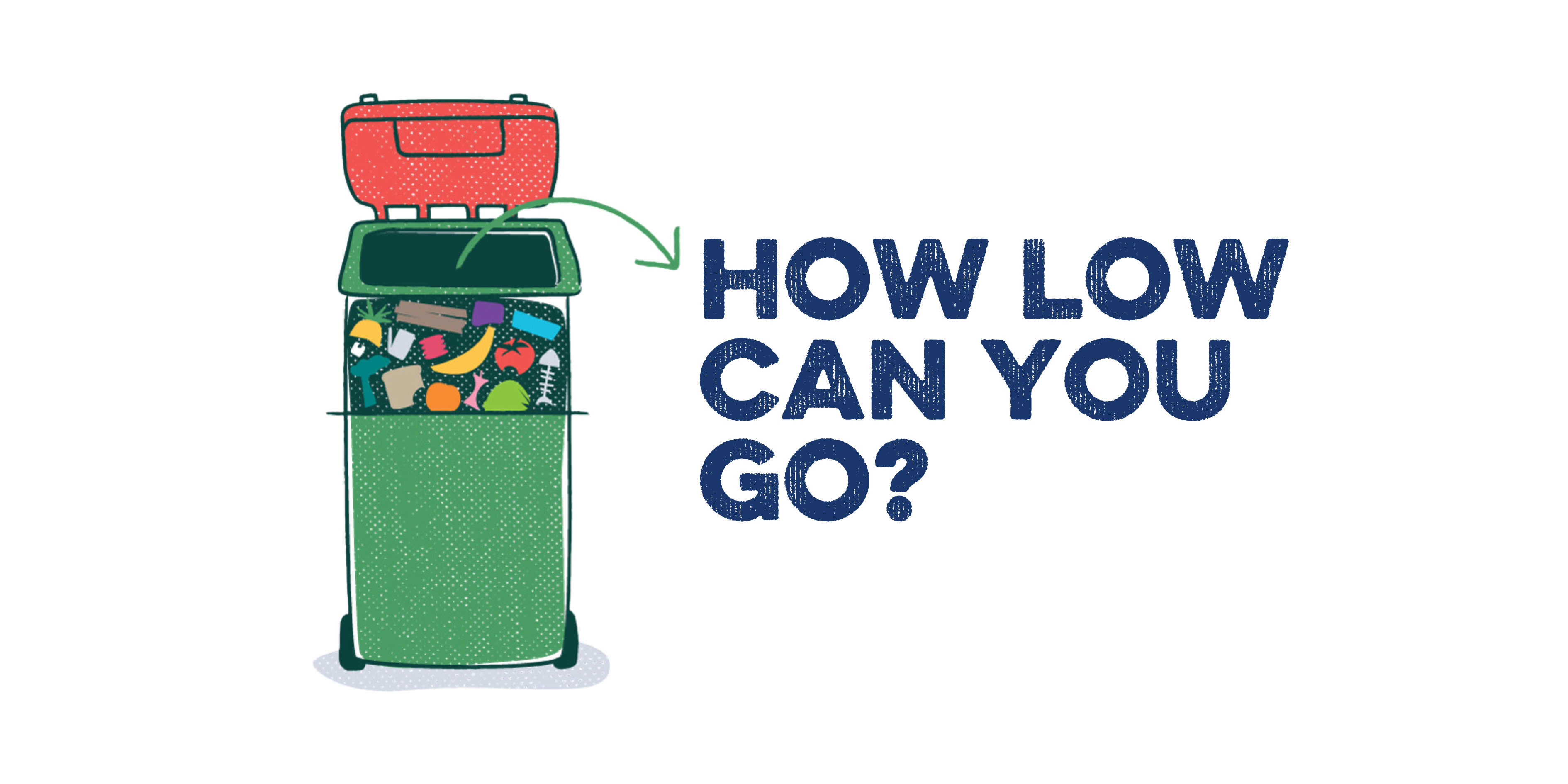How Low Can You Go?
Our target is 50% less food waste
Did you know? More than 30% of the household waste we send to landfill is food waste. We could feed over 22,000 people with the food we waste. That’s a lot of food!
However, there are some easy steps you can take to help reduce the amount of food going to landfill.
Some easy ways to reduce your food waste at home
- plan your meals
- check your pantry
- shop to a list
- store food appropriately
- try not to buy more than you need
- make the most of your leftovers
- freeze excess food for a second meal
- pickle and ferment extra food
- compost your food scraps through a compost bin, worm farm and/or bokashi bin.
To learn more about how you can reduce food waste, check out lovefoodhatewaste or attend one of our waste wise workshops.
From kitchen to compost
We've partnered with Compost Revolution to provide our community with a worm farm, compost bin or bokashi bin at discounted prices. Sutherland Shire residents get up to 50% off RRP plus free delivery on:
- 220L ‘Dirt Vader’ Compost Bin
- ‘The Farm’ worm farm
- ‘Maze’ indoor bokashi bin
Residents can request one order per household. These offers depend on funds available.
TUE 8 APRIL 2025 - Meal planning workshop
Menai Library, Menai Marketplace, Allison Crescent #20, Menai NSW 2234
TUE 6 MAY 2025 - Herbs at home workshop
Engadine Library, 116E Caldarra Ave, Engadine NSW 2233
In the future, Council is introducing a combined Food Organics and Garden Organics (FOGO) service. We support residents by avoiding and reusing waste through a range of awareness and education initiatives.
Food Organics and Garden organics (FOGO)
Yes, we’re working towards introducing a FOGO service, as outlined in our Waste Strategy. We’ll introduce a FOGO collection service where food waste can be put in your green lid bin and once collected is processed into compost.
- A FOGO collection service would bring Council in line with ‘best practice’ organics recovery.
- Can increase waste diversion rates by up to 15%.
- A reduction in organic materials in landfill results in reduced greenhouse gas generation from decomposing organic materials.
- Aligns with our commitment to addressing climate change and becoming a net zero emitter of greenhouse gases by 2030.
We are committed to delivering a combined FOGO service to households and anticipate a roll out date of mid-2026. At present there is nowhere for us to take FOGO for processing if we were to collect it. However, we are working locally and regionally to secure a facility that can accept our FOGO.
For such a significant change in waste and resource management practices, it’s critical we manage the financial, social and environmental impacts associated with the introduction of a FOGO service, to ensure it’s a long-term success.
We aim to roll out FOGO to all households including multi-unit dwellings. A feasibility study will inform how this is best delivered and when. For example, the service might be food only for some multi-unit dwellings that are currently without green lid bins.
A number of other Councils have already launched FOGO and we are learning what worked well for them and what didn’t. As we progress, we will keep our residents informed of our plans and we’ll ensure our community is involved and has the opportunity to have their say along the way.
In the meantime, all food waste must continue to go in the red lid bin. Check out our ’How low can you go’ campaign for ideas on how you can reduce food waste in other ways.
No, currently all food waste must be placed in the red lid bin. Placing food waste in the green lid bin will contaminate green waste. Find what can and can’t go in your Green lid bin
Composting and worm farming
- Composting improves soil, reduces waste to landfill and reduces greenhouse gas emissions.
- We run free compost and worm farm workshops for our residents. Residents attending a workshop can select a compost bin or worm farm at the end of the workshop. See Waste Wise Workshops for upcoming events.
- Households can also receive up to 50% off a worm farm, bokashi or compost bin through our partnership with Compost Revolution.
